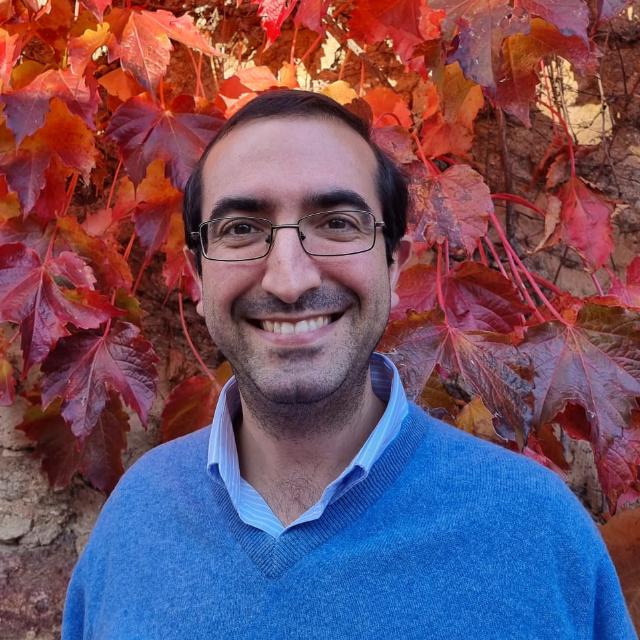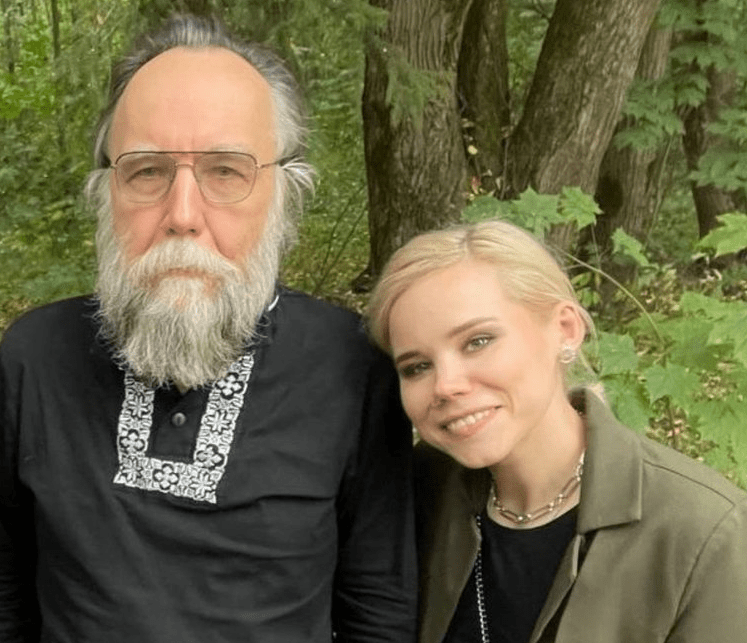Putin’s ideologue, Alexander Dugin, has dominated the front pages of the international media after the attack that killed his daughter Darya Dugina last Saturday. The researcher of the Ibero-American Network for the Study of Sects (RIES), Luis Santamaría, analyzes the profile of the Muscovite philosopher born in 1962, who “feels admiration for occult mysticism and paganism linked to national roots.” His suffering over Dugina’s death “could radicalize his idea of Ukraine.”
‘Rasputin of the Kremlin’, the ‘brain and ideologue of Putin’, ‘the number two enemy of the West’ or the ‘world’s most dangerous philosopher’. By all these identifiers the ideologue is recognized Alexander Duginthe Muscovite man born in 1962 who has dominated the front pages of the international media after the attack that ended the life of his daughter Daria Dugina last Saturday.
Before this event, which has increased tensions between Russia’s war against Ukraine, Dugin had already been the subject of various personality analyzes for being one of the characters closest to state decisions Vladimir Putin. The doctor of Philosophy and Political Science and author of more than 30 books is one of the most influential men in the Kremlin, so his psychological profile is most interesting.
The researcher of the Ibero-American Network for the Study of Sects (RIES), Louis Santamaria, parse for elcierredigital.com the peculiarities of the mind of Alexander Dugin, whose ideological position is framed in the traditionalism –staunch defense of an identity, cultural and spiritual tradition–: “The traditionalism in which Dugin is inspired, which is not just a conservative position, but defends the idea that there is a perennial spirituality, common to all cultures and the whole story, one hidden wisdom“.
Alexander Dugin with his daughter Darya Dugina.
As Santamaría describes, “the modernity, liberalism and democracy would be threats for this traditional way of seeing and doing things. That is why he sees today as a decadence, and only the return to eternal values would save humanity. Authors of this current defend authoritarian regimes, the existence of an aristocracy and even the legitimacy of violence to impose their ideas.
So much so, that Dugin wrote in some rescued lines from 2014 – with the end of the Euromaidan revolution in Ukraine – the following: “We should clean Ukraine of these idiots. The genocide of these cretins is inevitable and mandatory… I can’t believe they are Ukrainian. Ukrainians are wonderful Slavic people. And this is a race of bastards that has come out of the sewers.”
Dugin’s vital and intellectual trajectory, according to Santamaría, passes through “his admiration for occult mysticism and for paganism linked to national roots.”
As the expert explains, “Dugin’s thought is a complete ideology. It is total and totalitarian. It encompasses everything, like a worldview. And therefore, it also has its metaphysical or spiritual part. And specifically, as it happened in Nazism and some variants of fascism, Dugin’s ‘fourth political ideology’ and ‘Eurasianism’ have an important esoteric component –hidden from the senses and from science–”.
Eurasianism, the ‘doctrine’ of Alexander Dugin
Alexander Dugin’s theory is known according to himself as the ‘Fourth Political Theory’. As reported by the expert Luis Santamaría -and also reflected in a Aleteia website publication–, this theory “consists in proposing the overcoming of the three great contemporary ideological paradigms: liberalism, communism and fascism”.
The expert goes on to explain: “At first glance, it is very attractive to many people dissatisfied with the current geopolitical situation. But, as soon as one goes further, it becomes clear that it is an anti-liberal ideology, and that in its efforts it assumes some nationalist, socialist and fascist elements.”

Luis Santamaría, researcher of the Ibero-American Network for the Study of Sects (RIES).
At the bottom of Alexander Dugin’s proposal, of his Fourth Political Theory, lies something that is not of his invention: the Eurasianism. “This is a school of thought whose origins can be traced back to the period between the First and Second World Wars. Specifically, when the Muscovite linguist Nikolai Trubetskoi (1890-1938) published his book Europe and humanity (1920). That is why some scholars refer to Dugin’s ideology as ‘neo-Eurasianism’, he comments.
In the words of the researcher, “it is an imperialist perspective of Russia that goes beyond an oversized nationalism, considering that this civilization –much more than a simple large country– has a peculiar identity –different from Europe–, a special culture and a superior mission in the world, which constitutes “a messianic, apocalyptic and imperial vision of Russia”, homeland that would have “a cosmic destiny”.
The possible consequences for Ukraine after the death of Dugin’s daughter
After the death of Daria Dugina, daughter of Alexander Dugin, produced by the explosion of a sticky bomb under her car, the possible violent response of the Kremlin against Ukraine is lived with tension. Despite the fact that kyiv last Sunday denied Russia’s insinuations of having been behind the attack, Dugin – Putin’s ideologue – supports his country’s accusation and sees the death of his daughter as a sacrifice for the nation.
While the world holds its breath for the steps that Russia can take in its war with Ukraine, the expert Luis Santamaria share with elcierredigital.com his concern, because “after experiencing a misfortune like this, the diffusion of Dugin’s ideas could be intensified, their suffering can radicalize them“. In addition, Santamaría adds: “If the influential ideologue uses the death of his daughter – a reprehensible fact – as “proof of the evil” of the current world, one can enter the spiral of justification for greater violence“.

